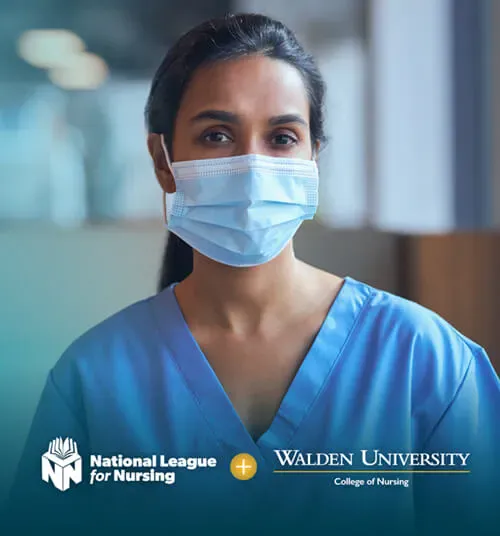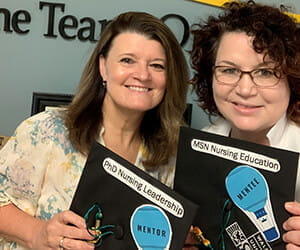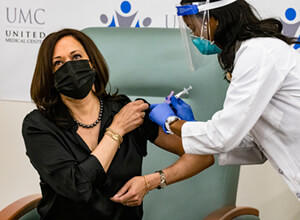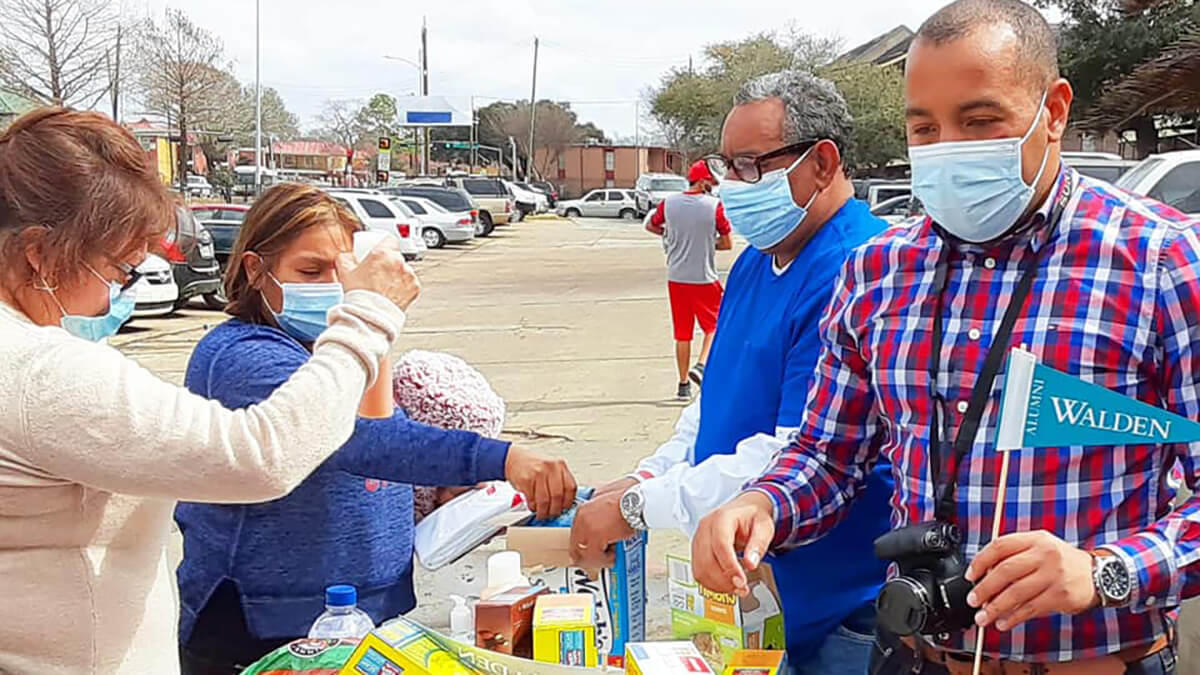
College of Nursing
As a nurse, you’re a caregiver, a lifesaver, and a healer.
You’re also an innovator, a self-starter, and a goal setter with big plans for your future.
Walden understands the dreams—and the challenges—of nurses like you. Developed and taught by actual practitioners, our CCNE-accredited online programs empower you to further your education without pausing your life. Elevate your profession, make your voice heard, and shape the nursing career you’ve always wanted.
A LEADER IN NURSING EDUCATION
A pioneer in distance learning, Walden is No. 1 in MSN graduates in the U.S.2
THE FREEDOM YOU NEED
Flexible learning options, including our Tempo Learning® format, are specifically designed for working professionals.
APPLY WHAT YOU LEARN
Implement what you’ve learned in a real healthcare environment during your field experience.
A COMMITMENT TO SOCIAL CHANGE
We are collaborating with the National League for Nursing to empower social change leaders in their professions and communities.
DEDICATED STUDENT SUPPORT
From our digital library to Student Success Advising, you have all the resources you need to thrive in your program—and beyond.
POTENTIAL TUITION SAVINGS
Walden partners with leading healthcare employers and associations to bring higher education to more nurses.3

Leadership
All College of Nursing leaders and teaching faculty hold doctorates—and most are active practitioners, too.4 Get valuable guidance and insights from those on the front lines of today’s nursing field.

Tracy Slemp
Dean
A board-certified FNP, Dr. Slemp has been a nurse for more than 30 years with a primary care focus on health and wellness. She also has more than 16 years of experience in higher education and has served in several leadership roles, including dean of the School of Nursing at King University.
Explore Our Nursing Programs
Institute for Social Determinants of Health and Social Change
Championing Health Equity
Nurse educators and inter-professional colleagues play an instrumental role in achieving health equity across various demographics. The National League for Nursing and Walden University College of Nursing Institute for Social Determinants of Health and Social Change is designed to cultivate these healthcare professionals into leaders who address the impact of structural racism, socioeconomic status, environment, education, adequate housing, and food insecurity on health and well-being. This collaboration further demonstrates Walden’s founding mission to empower social change leaders in their professions and communities.

Licensure
The following programs in the College of Nursing are designed to prepare students for professional licensure or certification:
- MSN - Adult/Gerontology/Acute Care Nurse Practitioner
- MSN - Adult/Gerontology/Primary Care Nurse Practitioner
- MSN - Family Nurse Practitioner
- MSN - Pediatric Nurse Practitioner Primary Care
- MSN - Psychiatric-Mental Health Nurse Practitioner
- Post-Master’s certificate - Adult/Gerontology/Acute Care Nurse Practitioner
- Post-Master’s certificate - Adult/Gerontology/Primary Care Nurse Practitioner
- Post-Master’s certificate - Family Nurse Practitioner
- Post-Master’s certificate - Pediatric Nurse Practitioner Primary Care
- Post-Master’s certificate - Psychiatric-Mental Health Nurse Practitioner
- DNP - Adult/Gerontology/Acute Care Nurse Practitioner
- DNP - Adult/Gerontology/Primary Care Nurse Practitioner
- DNP - Family Nurse Practitioner
- DNP - Pediatric Nurse Practitioner Primary Care
- DNP - Psychiatric-Mental Health Nurse Practitioner
Since no graduate program can guarantee that graduates will be permitted to practice as a nurse practitioner upon graduation, we encourage students to consult the appropriate board of nursing or state agency to determine specific licensure and practice requirements
Walden makes no representations or guarantee that students who complete Walden coursework or programs will be eligible for national certification. For more information about nurse practitioner certification exams, students should visit the American Academy of Nurse Practitioners at www.aanpcertification.org, American Nurses Credentialing Center at www.nursecredentialing.org, or other nurse practitioner certification websites.
The College of Nursing, dedicated to excellence in nursing education, provides programs to transform diverse nursing professionals into champions of change who will improve health outcomes and advance health equity.
The College endeavors to be recognized for its preeminent programs and innovative educational approaches that prepare distinguished graduates to advance the greater good of global communities.
Testimonials
FAQ
The baccalaureate degree program in nursing (BSN), master’s degree program in nursing (MSN), post-master’s APRN certificate program, and Doctor of Nursing Practice (DNP) program at Walden University are accredited by the Commission on Collegiate Nursing Education (www.ccneaccreditation.org).
Officially recognized by the U.S. Secretary of Education as a national accreditation agency, the Commission on Collegiate Nursing Education (CCNE) is an autonomous accrediting agency, contributing to the improvement of the public's health. CCNE ensures the quality and integrity of baccalaureate, graduate, and residency programs in nursing.
A practicum gives you valuable practical experience by allowing you to apply your new knowledge and skills in real-life situations and settings. You are responsible for initiating your search for a field site based on your geographic preferences. However, if you need assistance, register for Walden University’s Practicum Pledge™. Our dedicated Field Placement Team will then partner with you to secure your site and preceptor. This enhanced support gives you added confidence as you start your online Nursing journey.
Yes, with the exception of two of the four residences required in the PhD in Nursing program.
Note that all programs do require clinical hours in the field, with the exception of the PhD in Nursing program.
All programs require clinical hours in the field, with the exception of the PhD in Nursing program. The number of required clinical hours varies by program.
Yes, applicants to Walden’s BSN, MSN, DNP, PhD and Post Master’s Certificates in Nursing programs must have a registered nurse (RN) license in the United States or international equivalent thereof. This license must be current, active, and in good standing (i.e., unencumbered) through the start date of their intended program and throughout the duration of their enrollment in their academic program.
Aspiring Nurse Practitioners should ensure that they have thoroughly researched the laws and regulations in their own state. There are many resources available on the web, including those offered by the National Council of State Boards of Nursing. Board of Nursing information for individual states can be found on their website.
There are multiple pathways into Walden’s bachelor’s, master’s, and doctoral degree programs. When you enroll, you can choose the educational track that fits your professional needs and interests. Find out more.

Whatever your question is, we’ve got you covered.
Walden’s Enrollment Specialists are trained to help you research, plan, and get started on your academic journey. We can:
- Find the right program option for you.
- Explore scholarships and financial aid.
- Identify prior credits that may transfer.
- Explain the application process
- And more!
Please use our International Form if you live outside of the U.S.
1Source: National Center for Education Statistics (NCES) IPEDS database. Retrieved February 2020, using CIP codes 51.3801 (Registered Nursing/Registered Nurse); 51.3808 (Nursing Science); 51.3818 (Nursing Practice). Includes 2017–18 provisional data.
2Source: National Center for Education Statistics (NCES) IPEDS database. Based on the most recent year of completions survey data available, using CIP code family 51.38 “Registered Nursing, Nursing Administration, Nursing Research, and Clinical Nursing” for Master’s degrees (Award level 7). Available at https://nces.ed.gov/ipeds/use-the-data. (Retrieved January 2021; may consist of or include provisional release data.)
3Partnerships may provide tuition savings to associated individuals who meet the criteria. Partners do not contribute to curriculum development, and partnerships do not imply preferential treatment of Walden graduates in hiring.
4100% of College of Nursing didactic faculty are doctorally prepared; clinical faculty are either doctorally prepared or are experienced, licensed APRNs.
Commission on Collegiate Nursing Education (CCNE)
The baccalaureate degree program in nursing (BSN), master’s degree program in nursing (MSN), post-graduate APRN certificate program, and Doctor of Nursing Practice (DNP) program at Walden University are accredited by the Commission on Collegiate Nursing Education (www.ccneaccreditation.org).







